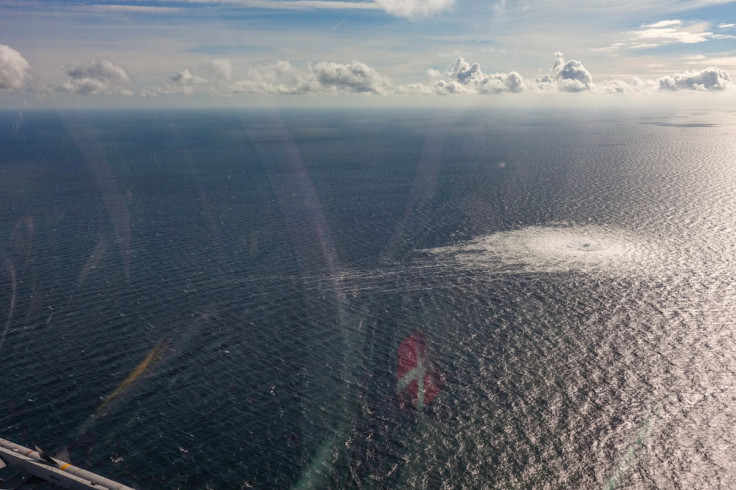Russia To Investigate Nord Stream Gas Leaks As 'International Terrorism': Report
KEY POINTS
- Seismologists in Denmark and Sweden said they registered two powerful blasts
- Russia, EU and NATO have alleged sabotage
- But who is responsible for Nord Steam pipelines damage still remains unclear
- Russia and European partners spent billions of dollars to build the pipelines
As gas continued to spew into the Baltic Sea for the third day, Russia said it will investigate the damage caused to the Nord Steam gas pipelines as a case of "international terrorism."
Russia's Federal Security Service (FSB) is investigating the damage as an "act of international terrorism," local media reports said Wednesday.
According to Russia, intentional actions were taken to damage gas pipelines, causing significant economic damage to the country.
The Kremlin spokesman Dmitry Peskov, said the leaks are "a big problem for Russia" and a loss of a valuable asset. On allegations of Russia's involvement, he termed them as "predictable, absurd and stupid."
Three leaks have been confirmed in the Nord Stream 1 and Nord Stream 2 gas pipelines under the Baltic Sea which the operator Nord Stream AG termed as "unprecedented" damage.
Meanwhile, the European Union and NATO have also said that the Nord Stream gas pipelines were sabotaged, with NATO foreign policy chief Josep Borrell sending out a warning Wednesday.
"Any deliberate disruption of European energy infrastructure is utterly unacceptable and will be met with a robust and united response," Borrell said. "All available information indicates those leaks are the result of a deliberate act."
Russia and European partners spent billions of dollars to build the Nord Steam pipelines, and it remains unclear who might be responsible for the sabotage.
Seismologists in Denmark and Sweden on Monday said they had registered two powerful blasts in the vicinity of the leaks and the explosions were in the water, not under the seabed.
The Nord Stream pipelines, which originate in Russia and pass under the Baltic Sea to Germany, have been one of the flashpoints in an escalating energy war between Europe and Moscow following the Russian invasion of Ukraine in February, pummeling major Western economies and sending gas prices soaring.
The Nord Stream 1, which ran at reduced capacity since mid-June, stopped supplies altogether in August. Meanwhile, the Nord Stream 2 pipeline, despite being complete, never became operational.
The leak was first reported in the Nord Stream 2 pipeline which, according to the operator, had contained some gas sealed inside despite not becoming operational. Later the operator of the Nord Stream 1 pipeline also reported a pressure drop on both strings of the gas pipeline.
Fears have been expressed that the pipelines will become unusable if large volumes of salt water flow into them causing corrosion.
Meanwhile, the United Nations Security Council will convene on Friday at the request of Russia to discuss the damaged pipelines.

© Copyright IBTimes 2025. All rights reserved.




















